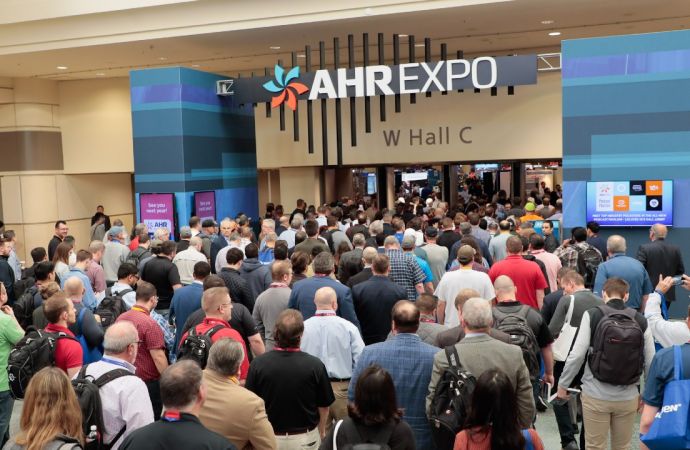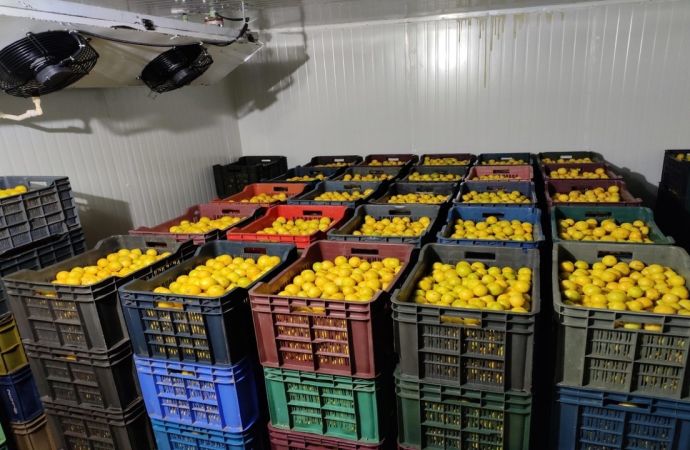Thailand’s I.T.C. Group is developing its CO2 product portfolio to complement its ammonia offering.

I.T.C. Group Managing Director Apichit Lumlertpongpana.
Until recently, the I.T.C. Group, a leading manufacturer and supplier of refrigeration systems to the industrial sector in Thailand, had focused mainly on the use of ammonia, but now it is also developing innovative CO2 systems – for which the company sees significant potential in Southeast Asia.
Established in 1982, Bangkok-headquartered I.T.C. Group has long been developing and manufacturing ammonia-based refrigeration systems for the country’s freezing and cold storage industry.
Led by Managing Director Apichit Lumlertpongpana, the company looks to the future to guide its R&D. It is now looking into using CO2 technology to help its customers reduce the amount of ammonia charge in their facilities, or even to replace ammonia altogether: with transcritical CO2.
Accelerate Asia spoke to Lumlertpongpana about the I.T.C. Group’s most recent efforts in this area and the potential for natural refrigerant technology in the region.
Accelerate Asia: Can you please provide some background on the main types of refrigeration system and refrigerant I.T.C. has been working with over the past 10-15 years? Who have been your main customers?
Lumlertpongpana: I.T.C. Group is one of the leaders in turnkey design and contracting in Thailand's refrigeration industry. With our installations, 98% use ammonia as the refrigerant. The largest installation in one plant used 46 sets of ammonia screw compressor packages.
This plant won first place in the 2008 ASHRAE Technology Awards. Our main customers are mostly in poultry and seafood processing, and fruit and vegetable facilities.
To date, only two of our installed plants used CO2. The first CO 2 installation was at our I.T.C. office, which used a cascade R507/CO2 brine system for a thermal ice storage application in 2015.
The other was a cascade NH3/CO2 pump recirculation system for a cold storage facility. Ammonia is continuing to grow and I.T.C. will also drive the CO2 market to grow more.
Accelerate Asia: What is I.T.C.'s current focus? Do you have any recent or current projects you are working on that use natural refrigerants?
Lumlertpongpana: I.T.C. is focusing on transcritical CO2 systems. We have started to build a demonstration on a self-contained containerised unit with a small cold room container. Another trial will be at our factory’s air-conditioned office area, with CO2 transcritical thermal ice storage and an adiabatic evaporative gas cooler.
Accelerate Asia: Can you please tell us about the Cooling Batt project? What are the system's specifications, and how does it work?
Lumlertpongpana: The Cooling Batt was our first trial to use CO2 at our own facility and to learn how CO2 behaved. We also let our design engineers, technicians, and factory staff be hands-on with this R507/CO2 cascade system by using thermal ice storage and melting it to become chilled water during the peak period, so that we can gain maximum benefit from the low tariff rate of electricity costs and peak-demand charges. The public is welcome to visit our facility.
The system was installed in 2014 and the results have been excellent, already paying us back.
Accelerate Asia: Transcritical CO2 systems are growing quickly in industrial refrigeration. Do you see potential for more CO2 or ammonia-based systems to be applied in Thailand or Southeast Asia as well? Have you considered this technology for your customers?
Lumlertpongpana: I also follow transcritical CO2 closely. Currently, we are starting to do our own R&D and learn from lessons in-house before we go out to drive things in the market.
The opportunity for CO2 refrigerant is very high. A big barrier, however, are cities' high building architecture and the government, who does not want to take a risk with using ammonia in congested areas in cities.
Accelerate Asia: How about the potential for NH3/CO2 cascade systems in industrial refrigeration in Thailand?
Lumlertpongpana: We have launched one installation and are monitoring it very closely. Once we’re fully 100% confident, we will convince the market to try this ammonia charge-limiting solution through a CO2 cascade system.
If our CO2 transcritical trial system is a success we will implement it in the market next year. I.T.C. aims to continue living up to our slogan of ‘frontrunner in refrigeration systems’ in both Thailand and the ASEAN countries.
Click here to read the full version of this interview in Accelerate Asia magazine, published ahead of the ATMOsphere Asia conference on natural refrigerants to be held in Singapore on 4 September.
Related stories




